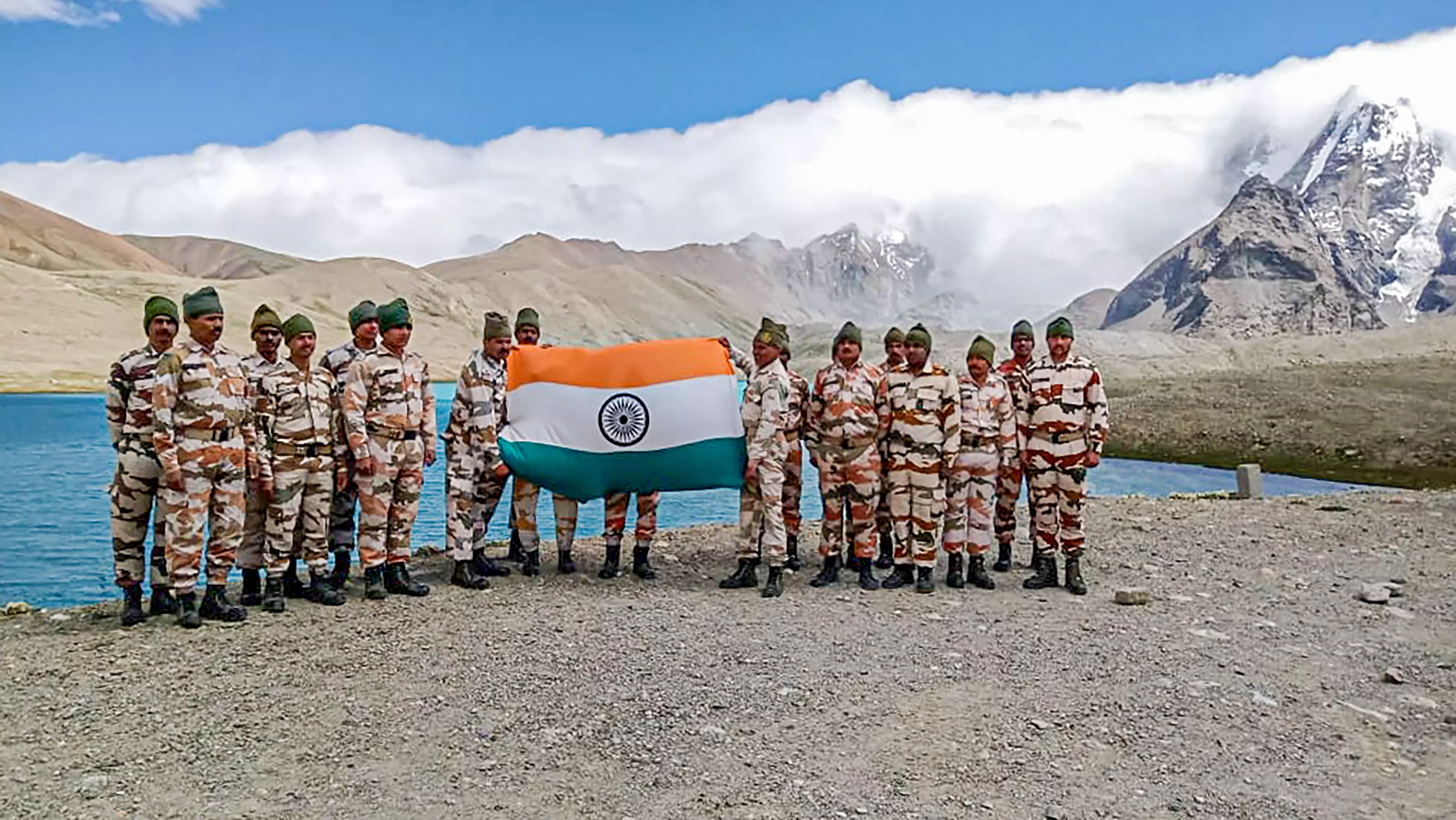Shashi Warrier | Is Independence Day All That We Have Left?

An old friend, Sunil, and his wife, Madhu, came visiting from Bengaluru the other day. We were looking forward to that, for they both like to argue without venom so it's all good fun.
They arrived one evening a few days after Easter, and, when they had refreshed themselves, we settled them down with food and drink. The talk inevitably turned to the massacre at Baisaran, still fresh in all our memories, to the usual whodunit questions, and then to the possibility of all-out war with Pakistan.
Then the doorbell rang, and there stood Murthy. “I thought you’d be home,” he said.
“I am,” I replied. “With guests and conversation.”
“What conversation?” he asked after the introductions.
“Baisaran,” replied Sunil.
“And what do you think?” asked Murthy.
“We should hit their non-state actors,” replied Sunil. “They should think twice before doing something like this again.”
“No,” said Madhu. “We should wipe out their army’s ability to do something like this for the next generation. Twenty-five years of peace.”
“No,” said Sunil. “We should stay away from all-out war, and make ourselves more secure. Make sure we can deal with skirmishes and intrusions.”
“And live on tenterhooks all our lives?” asked Madhu.
“If necessary,” replied Sunil.
“But if we destroy their war machine we’ll live in peace for some years, won’t we?” asked Madhu.
“We’ve tried it in 1965,” replied Sunil. “We couldn’t. Bhutto talked about a thousand-year-war half a century ago. He said the people would eat grass but beat the Indians. It seemed like the Nazi thousand-year-Reich, but unlike the Reich, the regime goes on.
“And now they’re jealous. We’ve been getting richer and more respected for some decades, while they’ve been going down. So they’ve returned to religious cleansing. Their army chief said so, and from the applause he got it looks as if most of the wealthiest Pakistani diaspora agree. But he also said something about Kashmir being Pakistan’s jugular.”
“What was that jugular thing about?” asked Madhu.
“Their water comes from the Indus river system which originates in Kashmir. We’ve kept to the Indus Water Treaty through all these wars and skirmishes, but they want more water because parts of Sindh are becoming desert. Breaking the treaty makes sense for us.”
“But they’ve said that means war,” said Madhu.
“They don’t mean it,” said Sunil.
“Why not?” asked Madhu.
“Because war will cost them dearly,” replied Sunil. “More than anything else, war breaks economies. The only country that did well in World War II was the only big participant that didn’t have to fight on its own land: the US. They did so well that they could finance Germany’s recovery and Japan’s afterwards, and became the sole superpower after the Soviet Union fell…
“Anyone who wants to keep growing doesn’t go to war, no matter how good it seems.”
“What do you mean, good?” I couldn’t help asking.
“Pakistan is in a financial hole,” replied Sunil. “They’re short of money, arms, fuel, and ammunition. They have insurgencies in the west, and perhaps one in Sindh as well. And they might have lost control over their nukes. They’ve never been so weak.”
“Then this is a good time to wipe them out!” I said.
“You might control when you start a war but you don’t know how it’ll end,” said Sunil. “Look at Ukraine. Russia’s ‘limited military operation’ that should have lasted weeks has been on for three years and shows no sign of ending.”
I refilled their drinks and took advantage of the gap in the conversation to ask Murthy, “And what do you think.”
“Oh,” he said, “I don’t really know, but there are questions that we haven’t asked.”
“What?” asked Sunil and Madhu unanimously.
“Don’t the Pakistanis know they’re in a hole?” he asked. “That they’re at their weakest?”
“I suppose they do,” said Sunil.
“Then why did they poke us in the eye?” asked Murthy.
“So their army can play hero?” asked Sunil. “They can bolster the pretence that they’re keeping their public safe?”
“Or could it be that someone’s paying them to do this?” asked Murthy.
“Who?” asked Madhu.
“The Chinese, for example,” replied Murthy.
“But what do the Chinese get?” asked Madhu.
“They’re our enemy,” said Murthy. “Their biggest economic weapon is their manufacturing base, which they created over the years with lots of pain to their people and to their environment. Now, with a shrinking market for their products, they’re in a hole, too. And who’s likely to replace them as the factory of the world?”
“India might,” said Madhu. “So what?”
“The best thing for the Chinese would be a war between India and Pakistan,” replied Murthy, “with Bangladesh helping Pakistan. That would leave India broke.”
“What about those things they’ve been saying about the dragon and the elephant dancing together?” asked Madhu.
“They know they’re stronger,” said Murthy, “but they’re not battle-hardened. If they go to war with us they’ll have to postpone their superpower dreams for decades, during which someone else might come up. So are they saying ‘Hindi-Chini bhai bhai’ and paying the Pakistanis to poke us?”
“But won’t the Pakistanis suffer?” asked Madhu.
“Why should the Chinese care?” asked Murthy. “They could throw a few crumbs to the Pakistani army, and wait for us to go to war. They could support the Pakistanis if that’ll extend the war.”
“And where does that leave us and the Pakistanis?” asked Madhu.
“With Independence Day,” replied Murthy.
“What do you mean?” asked Madhu, nettled.
“So we can persuade ourselves that at least we’re better off than we were under the British, though that’s probably no longer true for the Pakistanis.”
